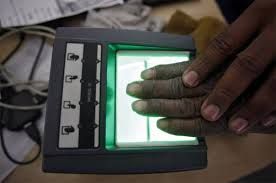 The Supreme Court on Monday asked the Centre to write to all the states to strictly comply with its earlier order of September 23, 2013, and not make an Aadhaar number compulsory to claim any state benefit.
The Supreme Court on Monday asked the Centre to write to all the states to strictly comply with its earlier order of September 23, 2013, and not make an Aadhaar number compulsory to claim any state benefit.
The court had then directed the government that the Aadhaar number should not be made mandatory for availing any government services.
Though Monday's hearing means status quo on the matter, it could add a bit of cautiousness to various ambitious plans of the Central government that intend to link Aadhaar with several government schemes, even though on a voluntary basis.
The court was hearing a batch of petitions challenging the Aadhaar unique identity scheme for all citizens in the country.
Senior counsel Gopal Subramanium argued that even in Delhi, the authorities concerned were insisting on the Aadhaar number for registration of marriage.
The presiding judge, J Chalameswar also observed that in certain southern states, he had also found the authorities demanding the number.
Representing the government, Solicitor General Ranjit Kumar admitted that some states were not following the court order.
He said the government would write to them not to insist on the Aadhaar requirement.
The government assured the court it would write to the chief secretaries of all states about the need to follow the court direction.
After the 2013 Supreme Court order, the previous government had made linkage of Aadhaar optional for disbursing various subsidies and welfare payments such as scholarships and pensions under its Direct Benefits Transfer project, and had put DBT in cooking gas in abeyance.
The present National Democratic Alliance government restarted DBT in LPG, but gave citizens the choice of availing the subsidy in their bank accounts, without linking to Aadhaar number.
The government also launched several new initiatives with the Unique Identification Authority of India number such as the Jan Dhan Yojana, biometric attendance of Central government employees, etc.
In most of the scheme, where the UID number was linked, it was not made mandatory keeping in mind the Supreme Court order.
In the case of Jan Dhan Yojana, added benefits were defined for the residents who linked their Aadhaar numbers with the bank accounts.
It is unclear if the purview of the order encompasses schemes such as the Jan Dhan Yojana.
D K Mittal, mission director of DBT and former financial services secretary, said Monday's order doesn't change anything.
“The court has just reiterated its past order. . . The government is not forcing anybody to give Aadhaar.
"In most cases, people are themselves coming forward to list their numbers since they find value in using it,” he said.
It was announced in the Union Budget 2015-16 that the DBT scheme would be further expanded to cover more schemes and residents.
So far, about 800 million residents have been given Aadhaar and the entire country is expected to be covered by this June.
There are about a dozen public interest petitions pending for two years arguing the scheme was unconstitutional as the right to privacy of citizens has been curtailed by the information in the hands of the authorities.
This information can be acquired by other entities and misused, the petitions allege.
However, the government has taken the stand that there was no such violation and the scheme would weed out illegal immigration, help streamline distribution of essential goods to the poor and eliminate ghost names in the voters list.
Monday's order is an interim one with the court continuing to hear further arguments on the issue of constitutional validity and privacy concerns around Aadhaar.











